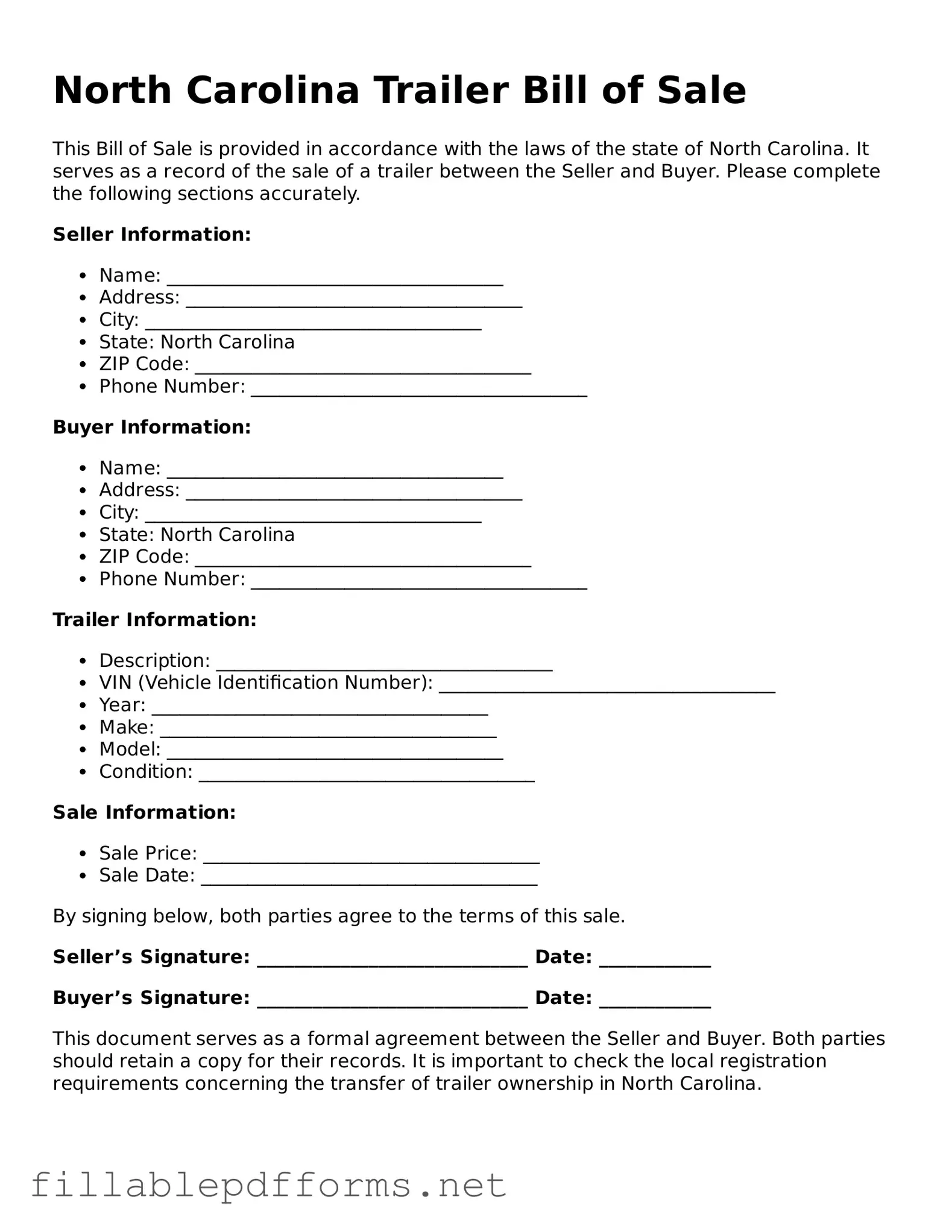Attorney-Verified Trailer Bill of Sale Form for North Carolina State
The North Carolina Trailer Bill of Sale form is a legal document that records the sale of a trailer between a buyer and a seller. This form serves as proof of ownership transfer and provides essential details about the trailer, such as its make, model, and identification number. Understanding this form is crucial for anyone looking to buy or sell a trailer in North Carolina.
Launch Editor Here

Attorney-Verified Trailer Bill of Sale Form for North Carolina State
Launch Editor Here

Launch Editor Here
or
▼ Trailer Bill of Sale PDF
Almost there — finish the form
Complete Trailer Bill of Sale online fast — no printing, no scanning.